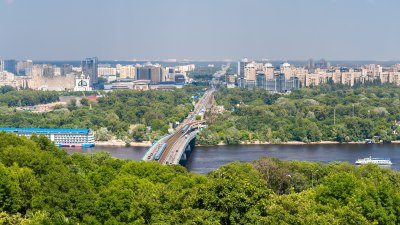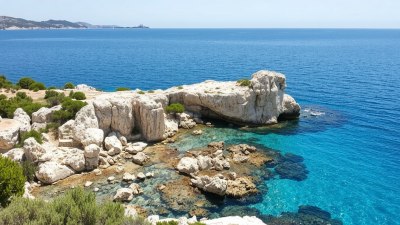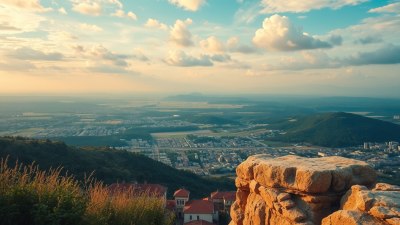You Were Here Before the Road Was
Explore the roots of existence with 'You Were Here Before the Road Was', a reflective journey.

In contemplating the essence of presence, one often finds a paradoxical reflection in the statement ‘You Were Here Before the Road Was’. This clause serves not simply as a reminder of moments past, but rather as an invitation to explore deeper layers of existence that transcend our immediate realities. The metaphor of roads often symbolizes the paths we take through life, guiding us toward experiences that mold our identities. Yet, this saying challenges us to contemplate what awaits us beyond these physical and metaphorical pathways.
The human experience is predominantly measured through the frameworks we establish around us; it is defined by the roads paved by civilization and our individual choices. However, to conceive of being ‘here’ before roads existed conjures a profound sense of timelessness and continuity that bypasses the limitations created by human constructs. Such a reflection invites us to explore our surroundings, our heritage, and the innate essence of our being.
Understanding Presence
Presence is inherently tied to both physical space and emotional states. To claim existence before the road implies a universality that spans beyond the linear timelines often imposed upon our lives. Before roads, before cities and structured environments, who were we? The answer delves into the collective memory of humankind, drawing from ancient civilizations and their connection to broader aspects of existence. We find ourselves entwined with nature, coexisting harmoniously with the world around us. This methodology of tracing our existence demands an examination of our core values, traditions, and the environmental landscapes that have shaped us.
Thus, to explore the sentiment of ‘You Were Here Before the Road Was,’ we must first articulate what ‘here’ encapsulates. Is it merely a physical location, a societal construct, or an emotional stage? In this context, ‘here’ signifies a fundamental essence, an unmediated connection to life that pre-dates structured experiences.
The Architecture of Roads
Humanity’s creation of roads has been a critical component in the development of societies. Roads as tools of connection reshape landscapes, both physically and psychologically. Throughout history, roads have served as lifelines, connecting distant communities, facilitating trade, and enabling cultural interactions. However, these pathways often also symbolize a loss—lost paths of individual journeys overshadowed by the demands of societal progress. Roads represent progress but can also signify the rigid confines of modernity that separate individuals from their origins and each other.
Thinking of existence before roads invites us to embrace an array of archetypal journeys that extend into the natural realm. The paths taken by ancient civilizations were often fluid and unbound by contemporary constructs. They were led instead by the rhythms of nature, the cycles of the moon, the changes of seasons, and the territories of animals.
The Natural World: Our First Home
Before the roads, human beings were intrinsically tied to the wilderness: forests, rivers, mountains and valleys were not boundaries but integral parts of existence. They were spaces woven into the very fabric of life, nourishing spirits and offering lessons through direct experiences. In these untouched expanses, the natural world served as both a teacher and an entity to revere. Every rock, tree, and animal contained wisdom, revealing truths about survival and interconnectedness.
This intimate relationship with nature cultivated a profound sense of identity and belonging. The absence of roads encouraged exploration and curiosity, fostering a sense of wonder that is often stifled in modern contexts. To embrace life before roads were laid is to recognize the importance of these natural environments as our original homes. It emphasizes the idea that we are not separate from nature; we are part of it.
Paths of Remembering
When considering ‘You Were Here Before the Road Was,’ we should also honor paths of remembering—how history gets preserved in individual and collective memories. Stories handed down across generations maintain a thread of connection to our ancestors, even if the roads that once facilitated their journeys have faded. In this sense, memory becomes fundamental to our existence, underscoring a continuum that exists regardless of the physical spaces we occupy.
Every remembrance carries with it a fragment of the past when roads were either non-existent or vastly different. In contrast to roads, which represent a specific direction of travel, memories reflect a more intricate network connecting us to stories, emotions, and wisdom that can guide us regardless of the paths we choose in a contemporary setting.
Reconnecting with Ancestral Roots
Understanding our existence before the establishment of roads proffers a chance to reconnect with our roots. Analyzing traditions can serve as gateways to understand where we originate and the values that shape our perspectives. Many cultures possess deeply ingrained customs and practices that speak to the harmony they shared with their environments prior to modern development. This connection often nurtures an appreciation for authenticity and simplicity, allowing us to embrace experiences that foster growth and enlightenment.
Emphasizing ancestral knowledge opens avenues to rediscover skills often diminished in urban society. Practices such as foraging, herbalism, storytelling, and art serve to remind us of our inherent artistry and connection to the earth. This revival bridges a gap between past and present, echoing the sentiment that even though physical roads have altered our movements, the core of our existence is rooted in testament and creation.
Rethinking Modern Structures
After acknowledging the essence that transcends the roads, we are faced with a critique of modern structures that shape our reality. Roads serve as a metaphor for modern life's linear dynamics—our routines, responsibilities, and roles in society. These structures can sometimes overshadow the experience of simply being present in the world. In an era dominated by speed and efficiency, we often overlook the significance of being in the moment, stirring a desire for depth and meaning that is often unfulfilled.
Instead of simply traversing the road of life, we are encouraged to appreciate the intricate landscapes that our paths may overlook. To counteract this, some adopt practices of mindfulness, encouraging individuals to reconnect not only with themselves but also with the world around them. Seeking presence in the spaces we inhabit allows us to rediscover beauty in the mundane and find strength in moments of stillness and reflection.
Creating New Roads
In a world dominated by preordained pathways, the challenge remains: how can we create new roads that honor our past while remaining relevant to the future? In recognizing where we came from, we gain clarity in where we’re headed. Innovation derived from tradition can serve as a foundation upon which future societal structures are built. Each new road created can foster the relationship between people and their environments while respecting the legacies that preceded them.
We must craft pathways of inclusion, sustainability, and respect, thereby ensuring that the foundations we lay will nurture growth for generations ahead. Envisioning roads as connective tissues that bridge communities can facilitate understanding amidst diversity, creating spaces that empower rather than divide. Hence, we engage in an essential dialogue about how we want to move forward, ensuring that the landscapes we create honor the heritage of those that came before us.
In essence, ‘You Were Here Before the Road Was’ challenges us to move beyond the confines of modern existence and reconnect with our foundational narratives. It invites us to explore the dimensions of presence that existed long before civilizations took form, shaping our understanding of identity, memory, and belonging. By embodying the sentiment that we were present prior to roads separating us, we become attuned to the interconnectedness of life. Embracing this perspective enables a nuanced understanding of contemporary existence and emphasizes a continuous evolution where past and present coexist, unfolding the intricate web of human experience.











